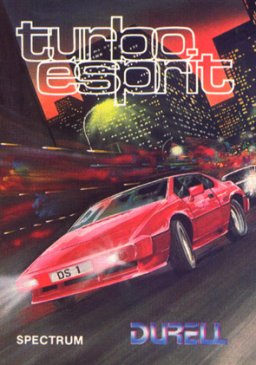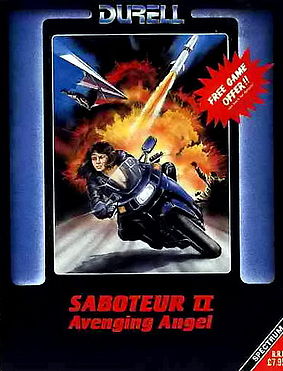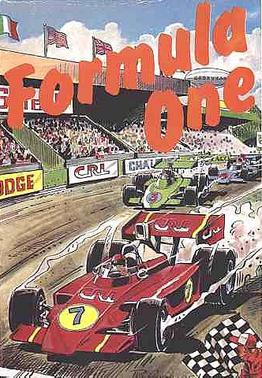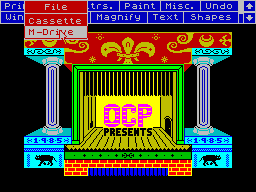Andrew Nicholas Oliver and Philip Edward Oliver, together known as the Oliver Twins, are British twin brothers and video game designers.

Krome Studios Melbourne, originally Beam Software, was an Australian video game development studio founded in 1980 by Alfred Milgrom and Naomi Besen and based in Melbourne, Australia. Initially formed to produce books and software to be published by Melbourne House, a company they had established in London in 1977, the studio operated independently from 1987 until 1999, when it was acquired by Infogrames, who changed the name to Infogrames Melbourne House Pty Ltd.. In 2006 the studio was sold to Krome Studios.
Odin Computer Graphics were a Liverpool-based computer games developer who came to prominence in the mid-1980s with a variety of titles for the ZX Spectrum, Commodore 64 and Amstrad CPC home computers.

CRL Group plc was a British video game development and publishing company. Originally CRL stood for "Computer Rentals Limited". It was based in King's Yard, London and run by Clem Chambers.
Vortex Software was a video game developer founded by Costa Panayi and Paul Canter in the early 1980s to sell the game Cosmos which Panayi had developed for the Sinclair ZX81. They converted the game to the ZX Spectrum, but due to the low sales of the ZX81 version they licensed the game to Abbex.

Harrier Attack is a horizontally scrolling shooter released for the Oric 1 and ZX Spectrum in 1983 by Durell Software. Ports for the Amstrad CPC and Commodore 64 were published in 1984.

Artic Computing was a software development company based in Brandesburton, England from 1980 to 1986. The company's first games were for the Sinclair ZX81 home computer, but they expanded and were also responsible for various ZX Spectrum, Commodore 64, BBC Micro, Acorn Electron and Amstrad CPC computer games. The company was set up by Richard Turner and Chris Thornton. Charles Cecil, who later founded Revolution Software, joined the company shortly after it was founded, writing Adventures B through D. Developer Jon Ritman produced a number of ZX81 and Spectrum games for Artic before moving to Ocean Software.

Tornado Low Level is a multidirectional flight game developed by Costa Panayi and published in 1984 by the company he co-founded, Vortex Software. The game was first released for the ZX Spectrum, and later ported to the Amstrad CPC and Commodore 64.

Turbo Esprit is a video game published by Durell Software in 1986 for the ZX Spectrum, Commodore 64, and Amstrad CPC. The game was very detailed and advanced for its time, featuring car indicator lights, pedestrians, traffic lights, and a view of the car's interior controls. Turbo Esprit was the first free-roaming driving game, and has been cited as a major influence on the later Grand Theft Auto series.
Crystal Computing, later renamed Design Design, was a British video game developer founded in 1982 by Chris Clarke and Ian Stamp while students at the University of Manchester. Graham Stafford, Neil Mottershead, Simon Brattel and Martin Horsley, joined the company as it expanded. The company's first software release was a compilation of games for the Sinclair ZX81, though it was with the ZX Spectrum that Crystal found its greatest success. A deal with the machine's manufacturer Sinclair to distribute Crystal's Zeus Assembler gave the company sufficient funds for a major marketing campaign for their next product, Halls of the Things, an arcade adventure game that became their most successful title.
Martech was a video game publisher which operated in Pevensey Bay between 1982 and 1989. It was founded as Martech Games. The company published a number of successful video games for the BBC Model B, ZX Spectrum, ZX81, MSX, Amstrad CPC, Commodore 16, Commodore 64, Atari ST, and Amiga.
Alligata Software Ltd. was a computer games developer and publisher based in Sheffield in the UK in the 1980s.

Saboteur II: Avenging Angel, also known as Saboteur 2, is an action-adventure game created by Clive Townsend and released by Durell Software in 1987 for the ZX Spectrum, Amstrad CPC, Commodore 64, and MS-DOS compatible operating systems. A sequel to 1985's Saboteur, the player controls a sister of Ninja from the first game on a mission to avenge his death. Saboteur II was one of the first action-adventure games with a female protagonist and was well received by critics.
Personal Software Services (PSS) was a British software company based in Coventry, founded by Gary Mays and Richard Cockayne in 1981. The company was acquired by Mirrorsoft in 1987. PSS produced video games for the ZX Spectrum, Commodore 64, Amiga, Atari ST, Atari 8-bit computers, Amstrad CPC, Oric computers, and IBM PC compatibles.
Addictive Games was a UK video game publisher in the 1980s and early 1990s. It is best known for the Football Manager series of games created by company founder Kevin Toms. The company was originally based in Milton Keynes, England, and later relocated to Bournemouth, in southern England.

Formula One is a Formula One racing management video game published in 1985 by CRL Group PLC. It was developed by G.B. Munday and B.P. Wheelhouse for the ZX Spectrum, and converted to Amstrad CPC by Richard Taylor.
Roland is a video game franchise developed in 1984 by Alan Sugar, CEO of Amstrad, and Jose Luis Dominguez, a Spanish game designer. Named for Roland Perry, a computer engineer who worked for Amstrad, the idea was to have one recognizable character in a number of different computer games in a bid to have the Amstrad CPC compete with the ZX Spectrum and the Commodore 64.

OCP Art Studio or Art Studio was a popular bitmap graphics editor for home computers released in 1985, created by Oxford Computer Publishing and written by James Hutchby.

Mevlüt Dinç, better known as Mev Dinc, is a Turkish-British video game designer. Born and raised in Turkey, he moved to England in 1979 while finishing his studies, intending to pursue a master's degree there. Unable to pay the high tuition fees for international students, Dinc worked in a cable factory in Southampton, where a colleague introduced him to video games and got him a ZX Spectrum when it was released in 1982. Dinc taught himself to program via magazines and began working in the video game industry in 1983, starting with assisting on the Commodore 64 conversion of Ant Attack, released in 1984. After his first original game, Gerry the Germ Goes Body Poppin', in 1985, he worked with Electric Dreams Software on another original game, Prodigy, the Amstrad CPC port of Enduro Racer, and various tie-ins with films and TV series.










